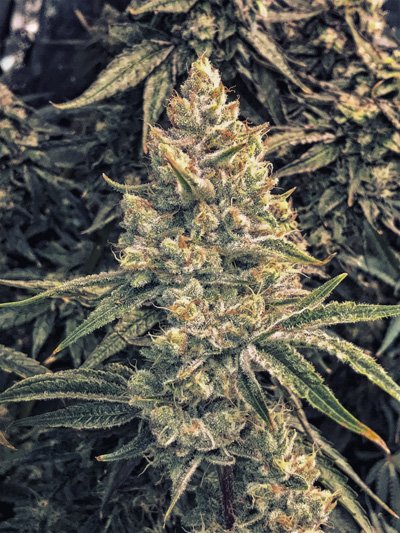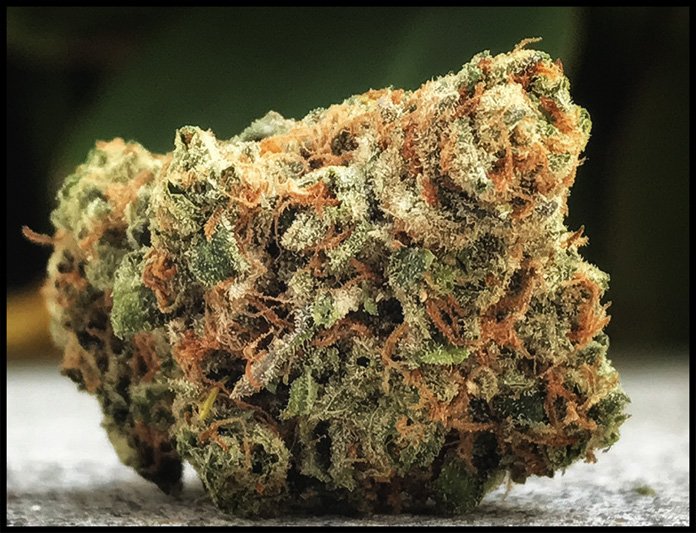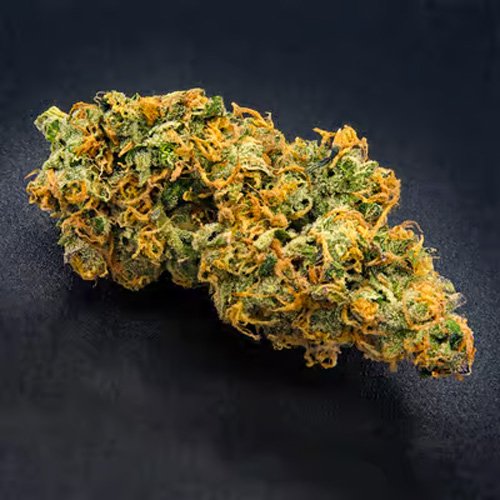Table of Contents
Last Updated on April 25, 2024 by Team Spinfuel

Don’t you just love how cannabis chills people out and makes ’em all smiley and giggly? I mean, I’ve seen it with my own eyes – people gather around smoking weed, get high, and just spread good vibes.
Hell, when I’ve been smoking weed, perhaps a bowl of Star Mints (a genetic combination of Stardawg x SinMint Cookies), beautiful Indica buds I’ve been smoking exclusively for more than a year, I get calm, friendly, and very generous. My kids know that when I’m high, to combat severe arthritis pain, they can ask for almost anything and I’ll say “Sure, have fun.”
But is there really science backing up the idea that smoking weed makes you more empathetic and kinder? Does this empathy increase only when you’re stoned, or does it change your brain chemistry forever? I wanted to know…
So, I decided to dig into the research to find out if lighting up can truly lighten your mood and make you more understanding.
Studies on cannabis and empathy are limited, but some interesting effects have been observed. I investigated whether compounds like THC reduce stress and anger and can increase empathy.
Below, I will provide information on the effects of smoking weed on kindness, backed by science and strain specifics, so that you can make an informed decision. Wouldn’t it be nice if everyone could become kinder just by toking a joint once a day?
The Claim: Cannabis Increases Empathy
I’ve heard many cannabis users report feeling a bit more empathetic and compassionate after smoking or otherwise consuming, weed. As someone who occasionally partakes myself, (occasionally = daily) I can relate to this experience. After smoking a bowl or eating an edible, I do find myself feeling more open-hearted and able to connect emotionally with friends and family. (I can be an asshole at times, so trust me when I say cannabis is making me better)
The Science Behind the Empathy Effect
Studies on the empathy effects of cannabis are limited, but some research does suggest a link. A 2016 study found that THC, the main psychoactive compound in cannabis, activates parts of the brain involved in empathy and emotion processing. Another study found that cannabis users scored higher on a measure of empathy compared to non-users.
The Role of Cannabinoids: THC vs CBD
The empathy effects seem to come primarily from THC, not CBD. THC activates the CB1 cannabinoid receptor in the brain, which is involved in emotional processing and social bonding.
CBD does not directly activate this receptor and seems to have little influence on empathy. So, strains high in THC and low in CBD, like many sativas, may enhance empathy more than high-CBD strains. Though to be fair, my Star Mints Indica strain contains 27.78% THC and 0% CBD, so some Indica strains work just as well.
Reducing Negative Emotions May Play a Role
Cannabis is also known for reducing symptoms like stress, anxiety, and anger. By diminishing these negative emotional states, weed may make it easier to cultivate positive feelings like empathy, compassion, and connection toward others. When you’re not preoccupied with worry or irritation, you have more capacity for openness, caring, and understanding.
Yes, research is limited, but my personal experience and preliminary studies suggest that for some cannabis users, weed could boost empathy and kindness. By activating the brain’s empathy center and reducing negative emotions, cannabis may help cultivate an open and compassionate heart.
Anyway, other research points to the effects of cannabis as reducing activity in the amygdala, the part of the brain involved in fear, anxiety, and anger, plays a role.
When this area is less active, we tend to feel more at ease socially and better able to connect with others. Some scientists argue this is why the plant has been used throughout history in social and religious rituals. I agree.
That said, cannabis is a complex plant, and not all strains are created equal. Sativa strains, especially those high in the terpene limonene, tend to provide an energetic, uplifting buzz that could enhance empathy and social bonding.
Heavy Indica strain, and THC-dominant strains, on the other hand, often lead to more insular, introspective experiences that some say are less likely to boost your kindness quotient. Hmmm…
While cannabis may have prosocial potential, especially for certain individuals or in specific contexts, the reality is more nuanced than some advocates make it out to be. As with many substances, environment, mindset, dosage, and the biochemistry of each user all play a role in the effects. If you’re looking to cannabis specifically to enhance your empathy, you may need to do some experimenting to find what works for you. But going in with the intention of connecting to others can only help.
Cannabis Strains That May Boost Empathy
 Now, when it comes to increasing empathy, certain cannabis strains may have an edge over others, and not just Sativa vs Indica. In my best friend’s experience, Sativa-dominant strains tend to enhance feelings of compassion and kindness towards others more so than his use of Indica strains, which are typically more sedating. My BFF (yes, men can have BFF’s) two sativa strains in particular stand out for their potential empathy-boosting effects:
Now, when it comes to increasing empathy, certain cannabis strains may have an edge over others, and not just Sativa vs Indica. In my best friend’s experience, Sativa-dominant strains tend to enhance feelings of compassion and kindness towards others more so than his use of Indica strains, which are typically more sedating. My BFF (yes, men can have BFF’s) two sativa strains in particular stand out for their potential empathy-boosting effects:
Super Silver Haze Cannabis Strain
 Super Silver Haze is a legendary Sativa-dominant hybrid that has won countless awards for its energetic and uplifting effects. A cross between Haze, Northern Lights, and Skunk, this strain boasts a complex genetic profile that results in a potent and invigorating high. Its high THC content, typically around 18-23%, makes it a favorite among recreational users looking for a euphoric and cerebral experience.
Super Silver Haze is a legendary Sativa-dominant hybrid that has won countless awards for its energetic and uplifting effects. A cross between Haze, Northern Lights, and Skunk, this strain boasts a complex genetic profile that results in a potent and invigorating high. Its high THC content, typically around 18-23%, makes it a favorite among recreational users looking for a euphoric and cerebral experience.
When smoked, Super Silver Haze produces a smooth and flavorful smoke with hints of citrus and earthiness. Its effects are known to be long-lasting, providing users with a burst of creativity and motivation. Many users also report feelings of happiness and relaxation, making it a great choice for daytime use. Whether you’re looking to boost your mood, enhance your creativity, or simply enjoy a pleasant high, Super Silver Haze is a strain that delivers a truly uplifting experience.
Maui Wowie
 Like a warm tropical breeze, Maui Wowie lifts his mood and brightens his outlook. This classic sativa cultivar has a reputation for eliminating stress and negative feelings like anxiety, anger, or depression.
Like a warm tropical breeze, Maui Wowie lifts his mood and brightens his outlook. This classic sativa cultivar has a reputation for eliminating stress and negative feelings like anxiety, anger, or depression.
In their place, it ushers in feelings of joy, optimism, and compassion. After a few puffs of Maui Wowie, he feels at peace with himself and the world around him. Small annoyances fade away and he gains a deeper appreciation for the connections shared with loved ones.
For me, a Baby Boomer who grew up with a brain that sped thoughts in my head at an alarming speed, who experienced sex abuse trauma at 5 years old, who was kidnapped at 8 years old, the only thing that got me through was smoking weed in copious amounts throughout my teen and young adult years.
After years of therapy, I came out the other end at 32, yet continued to use strictly Indica strains to maintain a calm, quiet mind. Remember, a lot of people, and some science, indicate Sativa strains work better than Indica, but for some people, Indica works just fine.
Indeed, the science is still limited, and these anecdotal experiences of my friend, myself, and the people participating in limited studies, suggest specific cannabis strains may enhance empathy and kindness.
However, set and setting, or the mental and physical state of a person, as well as their surroundings, can greatly impact their experiences and perceptions. To get the most compassion-boosting benefit, I recommend using these strains when you’re in a positive state of mind and around people you care about.
The combination of an uplifting sativa, the right mindset, and meaningful social interactions appears most conducive to cultivating empathy. Overall, cannabis should be used responsibly and in moderation for the best results. (I had to say that)
Any Potential Downsides to Smoking Weed?
ABSOLUTELY NOT! Ah… I mean, well… maybe?
While the idea that cannabis can increase kindness and empathy is an appealing one, it’s important to consider the potential downsides of regular use. As with any substance, marijuana can be abused and lead to negative health and social consequences. Okay, yes, that’s true. Cheech and Chong levels of dope smoking? Not a good idea.
Addiction
“Cannabis use disorder” is a real medical condition listed in the Diagnostic and Statistical Manual of Mental Disorders. Like “gender dysphoria” has also been classified as a disorder in medical texts (such as the previous DSM manual, the DSM-IV-TR, under the name “gender identity disorder”).
So, I am willing to admit that on that very rare occasion, some people, maybe 0.00001% of the population, might be able to suffer from CUD (cannabis use disorder) IF they were to start smoking weed every day for 10 years.
While the risk of addiction is nearly nonexistent, orders of magnitude lower than with other drugs, frequent use of high-THC cannabis over a very long period can lead to addiction in a few individuals. If you find yourself unable to cut back on using cannabis even though it’s causing problems in your life, you may have an addiction. Or, if not an addiction, it’s just a nice way to cope with the current insane world we’ve created. (Coming Soon: “The Pronoun Wars!” at theaters everywhere – July 4)
Smoking Weed and Memory and Cognition Issues
Long-term use of smoking weed has been linked to problems with memory, learning, and cognition. I admit there is a bit of “there” there. These effects seem to be more pronounced when heavy use begins in adolescence before the brain has fully developed. Indeed.
I’ve noticed in myself and my Indica friends who are heavy users of Indica strains that it can be harder to retain and retrieve information, stay focused, and switch between tasks. Not so for Sativa users, however.
These cognitive difficulties seem to fade away after sustained abstinence for a couple of months, but some changes may be long-lasting. (I’m 70, so I expect some short-term memory loss. I’m okay with that.)
Respiratory and Cardiovascular Problems When Smoking Weed

Smoking weed, or to be more accurate, inhaling cannabis smoke, like any smoke, can irritate the lungs and respiratory system when smoking a rolled joint. Regular use over many years may lead to respiratory diseases like chronic bronchitis. This is why the population of cannabis users has switched to dry herb vaporizers like the MAZE-X by weedgets.com. I used many pipes, bongs, papers, and even simple aluminum foil, but today’s technology has made cannabis consumption safer than ever before.
(Look for my full review of the MAZE-X, a Yocan Dry Herb Vaporizer, and a dab pen by Dr. Dabber very soon.)
Cannabis also raises the heart rate, especially a Sativa strain, and can have cardiovascular effects, especially in older adults or those with heart conditions. And, okay, fair point. But, so what? Take your blood pressure meds.
Using cannabis oils, edibles, or the aforementioned vaporizers will reduce some of these risks compared to smoking. So, look for my upcoming reviews.
Anxiety and Psychosis
While some cannabis strains and low doses may decrease anxiety and stress, higher-potency cannabis doses can exacerbate or even induce anxiety, paranoia, and psychotic symptoms like delusions or hallucinations. Again, at 0.00001%.
If you have a personal or family history of mental health conditions like schizophrenia or bipolar disorder, cannabis use may pose certain risks.
Using cannabis, like any drug, requires understanding both the potential benefits as well as risks to make an informed choice about if, when, and how much is right for you. Moderation and self-awareness are key. If you do choose to partake, look for balanced cannabis strains, consider alternatives to smoking, stay connected to supportive friends and community, and be vigilant for signs of dependence or other negative effects. Overall, cannabis can absolutely be enjoyed safely and responsibly, but, sadly, not for everyone.
Cannabis Use and Empathy: Key Takeaways
Cannabis may enhance empathy, but the research is limited.
As a daily cannabis user myself, I’ve noticed that certain strains, especially indicas, seem to make me feel more emotionally connected to friends or even strangers. The science on this is intriguing but preliminary.
A few studies have found that THC, the main psychoactive compound in cannabis, may activate parts of the brain involved in empathy, like the anterior cingulate cortex. However, most of these studies were small, and more rigorous research is still needed.
Sativa strains may increase empathy more than indicas.
If the empathy claim holds, then smoking weed, particularly the Sativa strains, which tend to produce a more uplifting, creative high, could enhance empathy more than the heavier, sedative indicas. Hmm…
Sativa contains more THC, the compound potentially linked to empathy changes in the brain. However, some people find that sativas increase anxiety, in which case an indica may feel more empathy-inducing. As with all cannabis, effects vary greatly based on the individual, tolerance, and dosage.
Look for terpenes like limonene or pinene.
Beyond THC content, terpenes like limonene (citrusy) and pinene (piney) found in certain strains may also uplift mood and decrease stress in a way that fosters empathy and social connection.
The smoking weed entourage effect theorizes that terpenes interact with THC and other cannabinoids to create the strain’s overall effect. However, more research is needed to fully understand terpenes’ impact.
Set and Setting are key.
“Set and setting” is a term that refers to the physical and psychological environment in which a person consumes a substance or engages in an activity. It is important because it can greatly influence the experience and outcome of the person.
For many cannabis users, the overall experience depends heavily on mindset and environment. Smoking alone may limit empathy increases while sharing cannabis socially could enhance them.
Listening to emotive music, (Pink Floyd, David Gilmour, Delerium) being in nature, meditating—these types of relaxing, meaningful activities may boost any pro-empathy effects of cannabis.
At the end of the day, cannabis is a highly personal experience, so you have to find what works for you. However, based on the limited research, an open, positive mindset and communal setting could help bring out the plant’s most compassionate qualities.
Or so I believe…
More Cannabis Pieces in Spinfuel:
Powerful Cannabis Strains and Inflammation Relief for 2024
The Cannabis Business – 4 Tips to Help You Grow and Expand
Why Should You Get Into Hybrid Strains?
Weed in Wonderland: Unlocking the Benefits of Cannabis for Restful Sleep









